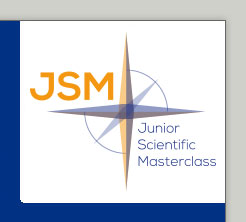Edit researchproject
In this email you'll find a link that you can use to edit the project on the website.
Only researchers that belong to the project can edit their project.
Please use the selectlist below to indicate which researcher you are. When you click the button 'Edit project', an email will be sent to the email of the selected researcher.
Project properties
| Title | Fungal Infection and Colonisation in Patients after Esophagus Surgery |
|---|---|
| Keywords | Fungal Infections colonisation esophagus surgery |
| Researchers |
Prof. dr. A.M.G.A. de Smet Dr. M. van Oosten Prof. dr. G.M. van Dam |
| Nature of the research | Database study |
| Fields of study | surgery microbiology |
| Background / introduction |
|---|
| In the University Medical Center Groningen (UMCG) 55-60 esophagus resections are performed per year, mainly as treatment for esophagus cancer. In this surgery, the complete esophagus is resected and the stomach is connected to the proximal cervical part of esophagus, serving as a new oesphagus. It is a major intervention with significant morbidity and mortality. One of the main complications is anastomotic leakage, and subsequent infection of the cervical area and mediastinum by local microbiological flora. Another often seen complication is pneumonia, again caused by the local flora of the patient. To minimize these complications, this patient category may benefit from selective decontamination of the oropharyngeal and digestive tract (respectively SOD and SDD), consisting of prophylactic antibiotic regimes to eradicate or suppress potential pathogens.1,2 Yeast are among the normal colonists of the oropharyngeal cavity, and are potentially able to cause infection.3 However, to date the significance of yeast infections in patients undergoing esophagus surgery is not completely clear. It is of importance to gain clarity in this matter to optimally adjust potential SOD/SDD regimes in this particular patient category. |
| Research question / problem definition |
|---|
| What is the incidence of yeast infection and colonization among patients after esophagus resection? |
| Workplan |
|---|
| You will perform retrospective search in the patient history and develop a database concerning yeast infection and colonization of this specific patient category. Subsequently, you will analyze your findings and draw conclusions concerning the primary research question. You will get familiar with the medical microbiology laboratory and the used information systems. |
| References |
|---|
|
1. Tetteroo GW, Wagenvoort JH, Castelein A, Tilanus HW, Ince C, Bruining HA. Selective decontamination to reduce gram-negative colonisation and infections after oesophageal resection. Lancet. 1990 Mar 24;335(8691):704-7. 2. Näf F, Warschkow R, Kolb W, Zünd M, Lange J, Steffen T. Selective decontamination of the gastrointestinal tract in patients undergoing esophageal resection. BMC Surg. 2010 Dec 16;10:36. 3. Hoffmann M1, Kujath P, Vogt FM, Laubert T, Limmer S, Mulrooney T, Bruch HP, Jungbluth T, Schloericke E. Outcome and management of invasive candidiasis following oesophageal perforation. Mycoses. 2013 Mar;56(2):173-8. |


